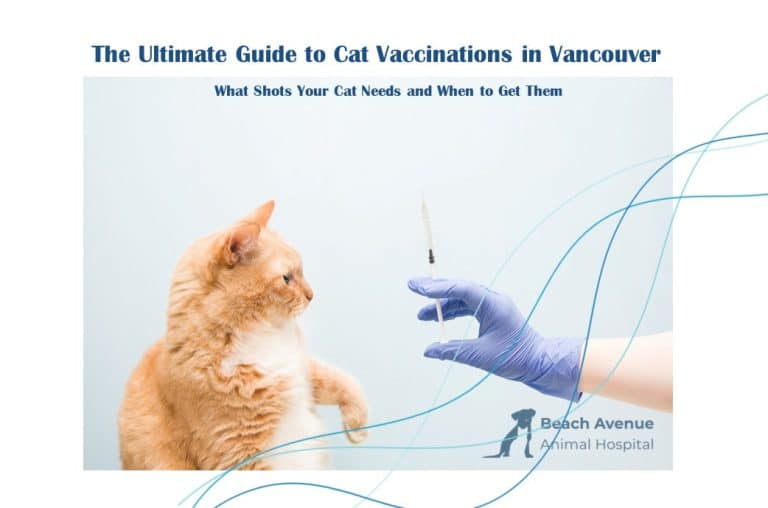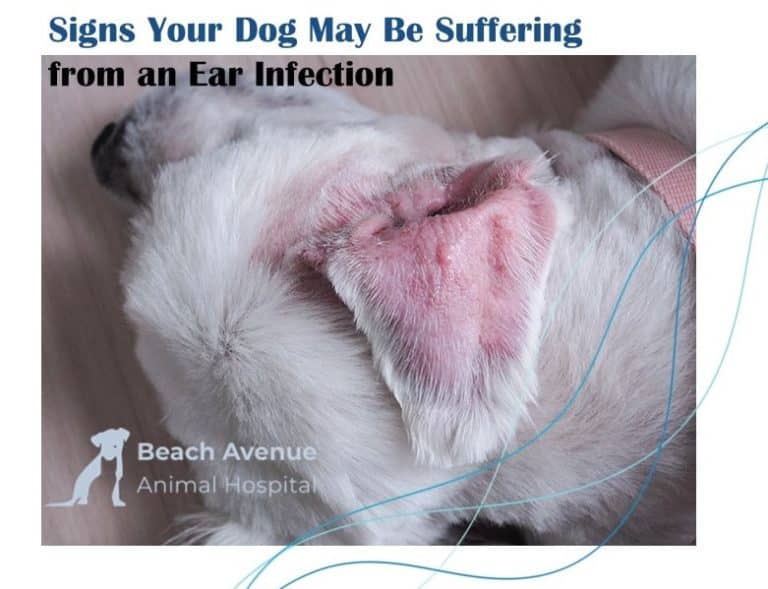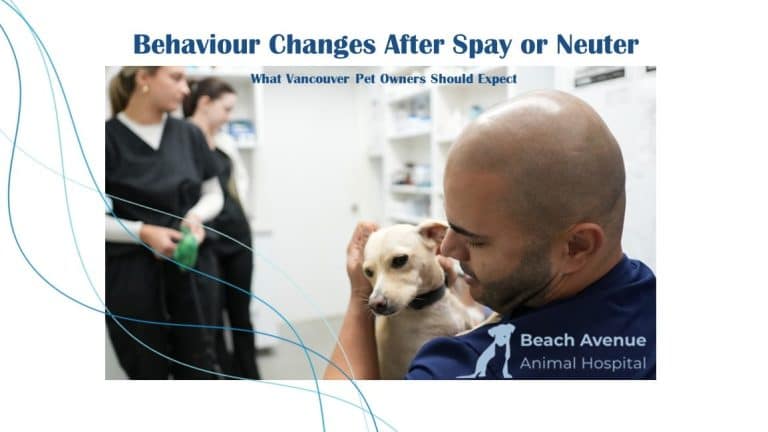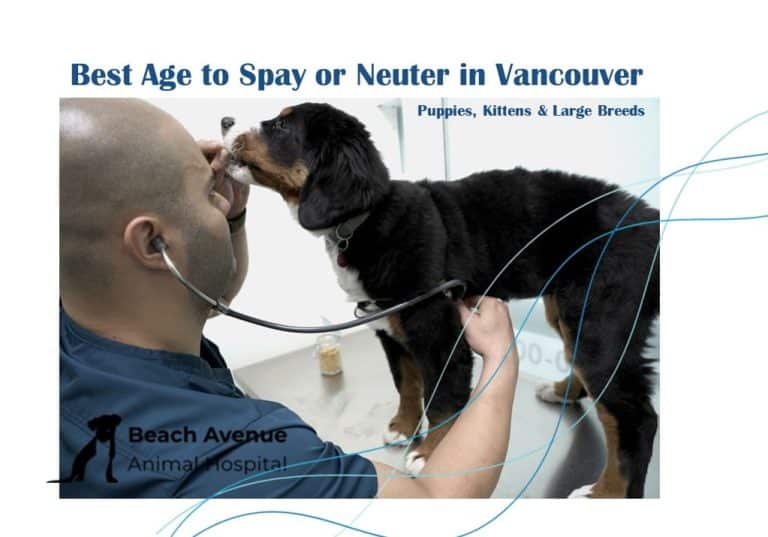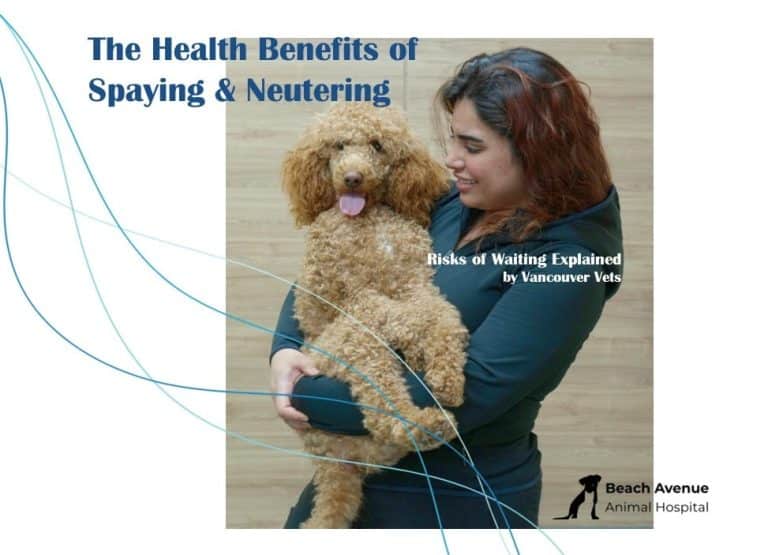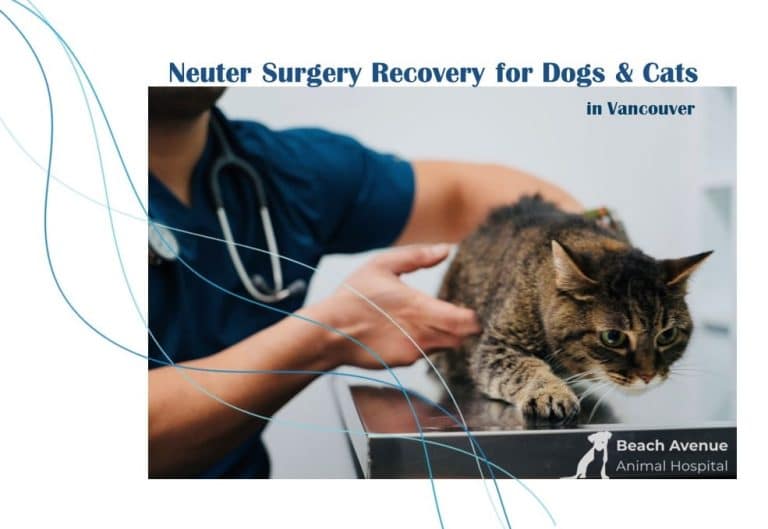Vaccines help keep pets protected against serious, highly contagious, and life-threatening diseases. Certain vaccines are important for all dogs or cats, and your Beach Avenue veterinarian may recommend other vaccines based on your individual pet’s lifestyle, age, environmental risk, and overall health.
Vaccines are an essential part of wellness and preventive care for both cats and dogs.
How Vaccines Work
Vaccines are designed to reduce the chance of pets getting certain diseases. As an added benefit, if a pet does get a disease that he or she was vaccinated against, the symptoms are often less severe and don’t tend to last as long.
Why Puppies and Kittens Need Vaccines
The antibodies that young pets receive from their mothers’ milk protects them while their immune systems are first developing. But this protection declines over the first few weeks to months of life, making puppies and kittens susceptible to diseases. This is when vaccines first become valuable.
We recommend starting vaccination of puppies and kittens at 8 weeks of age, with boosters 4 weeks afterward (at both 12 and 16 weeks of age for puppies). These vaccines stimulate a pet’s immune system to kick in. Finishing the full series of puppy/kitten vaccines is crucial for providing your pet with complete protection.
Vaccines set puppies and kittens up for a healthier life down the road.
Why Adult and Senior Pets Need Vaccines
Although diseases like parvovirus and distemper may be thought of as ones that only puppies and kittens get, the truth is that pets need boosters for certain vaccines at regular intervals throughout life (every 1 or 3 years) to ensure that they stay adequately protected. This is the case for several reasons:
- Not all pets who are vaccinated develop an immune response.
- A pet’s level of immunity to specific diseases decreases over time, based on how long vaccines remain protective.
- Other vaccines don’t provide pets with long-term immunity, so these vaccines need to be given more frequently.
- As pets age, their immune system tends to decline, so vaccinations can help boost an older pet’s immunity.
Core Vaccines
The essential (or “core”) vaccines provide protection against rabies, as well as severe respiratory and gastrointestinal viruses that can be fatal.
Core Canine Vaccines
- Rabies
- Distemper
- Canine hepatitis (adenovirus)
- Canine parvovirus
- Canine parainfluenza
Core Feline Vaccines
- Rabies
- Feline calicivirus
- Panleukopenia (also called feline parvovirus or feline distemper)
- Rhinotracheitis (feline herpesvirus type 1)
Some of these vaccines may be given together, as a combination vaccine.
Lifestyle Vaccines
Other vaccines are available to help protect pets based on exposure risk, such as pets who are boarded, go to the groomer, spend time in wooded areas, or visit dog parks or urban parks. These vaccines are often called “lifestyle” vaccines but may be beneficial for all dogs or cats.
Canine Lifestyle Vaccines
We recommend 3 lifestyle vaccines for our canine patients:
- Bordetella bronchiseptica, which helps protect against canine infectious respiratory disease complex or, as it’s more commonly known, kennel cough
- Leptospirosis, which helps protect against this serious disease that can cause kidney and liver damage in dogs and can be spread to people as well
- Lyme disease, which helps protect against this potentially debilitating disease that is common in our area (Vancouver Island and the coast of British Columbia that faces Vancouver Island are considered high-risk areas)
Feline Lifestyle Vaccines
We recommend the following lifestyle vaccine to help protect our feline patients:
- Feline leukemia virus (FeLV), which is especially important for kittens but may also be appropriate for older cats as well
FeLV weakens the immune system, putting cats at risk for ongoing health issues throughout life, including cancer.
How to Protect Your Pet
By making sure your pet is vaccinated following your veterinarian’s recommendations, you’ll be helping to keep your pet protected against highly contagious, potentially deadly diseases.
Your Beach Avenue veterinarian will tailor a vaccination program to your individual pet. Please don’t hesitate to call us if you have any questions about your pet’s vaccines, or schedule your pet’s wellness exam today.


